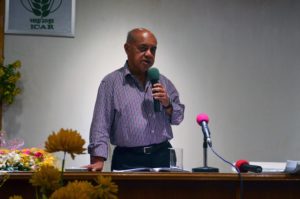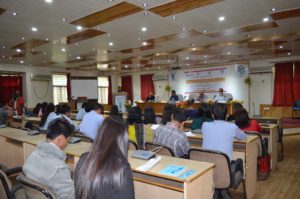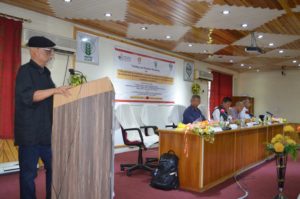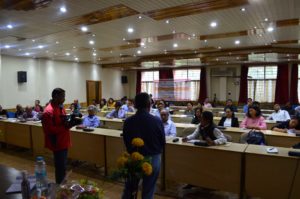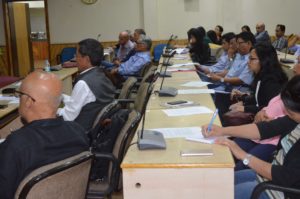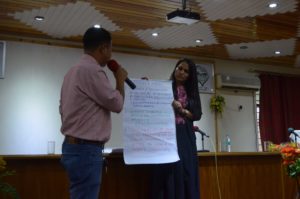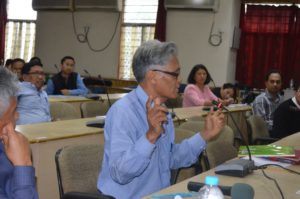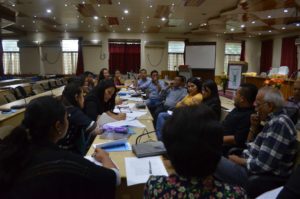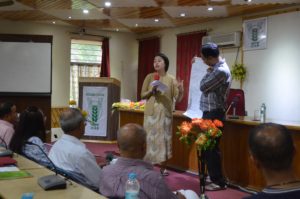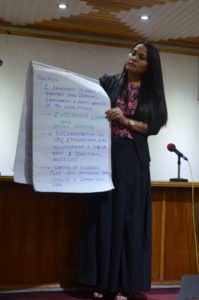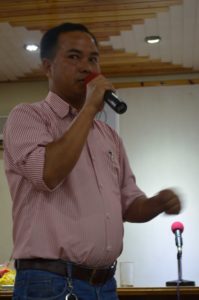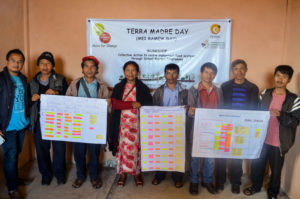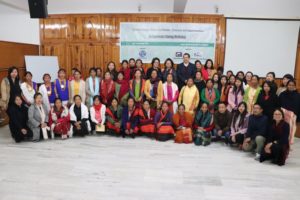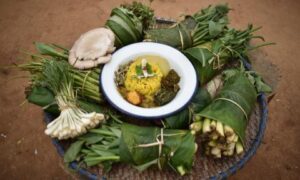“The modern industrial food and agricultural system which is locked to monocropping, chemicals, specialization, consolidation leading to a loss of biodiversity, soil erosion and loss of underutilized food plants will have to be transformed during the 21st Century because of the challenge of climate change and serious health issues” exclaimed Mr. Phrang Roy, Chairman, NESFAS at the training cum research workshop on “Traditional farming and development of Indigenous marketing pathways for sustainability of Indigenous farming systems” held on the 12th June 2017 at ICAR Research Complex for NEH Region, Umiam. The Director of the ICAR complex, Dr. S.V. Ngachan said “the North East has tremendous cultural and agrobiodiversity resources that we need to sustain for better food and nutrition security”. The meeting organized by NESFAS and ICAR brought together groups and individuals – scientists, stakeholders, practitioners, civil organisations, NGOs, academicians, researchers, and government for an interdisciplinary interaction and articulation on the importance of traditional farming systems and indigenous marketing pathways. Among the participants were representatives from MLCU, NEHU, NEN Nagaland, NERCORMP, MBDA, NESFAS, ICAR, and custodian farmers from the communities.
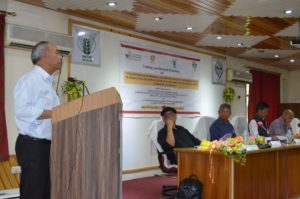
Dr. Carl O Rangad, Vice Chairman (Operations) NESFAS shared, ” This is a forum to discuss with like-minded people for preserving our natural heritage such as wild edibles, biodiversity, water, which often have few discourses”. The gathering also stressed upon the immediate issue of Climate Change Adaptation and the targets of the United Nations Sustainable Development Goals. It was pointed out that the FAO has established that the world’s agricultural soils have lost between 50 and 70 percent of their original carbon stock leading to soil degradation and desertification. Dr. Rangad stressed on the importance of carbon sequestration, which can be adopted by anyone through traditional ways of composting, which most indigenous communities already practice.
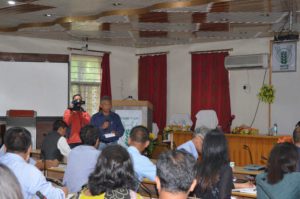
Resource person agroecologist Dr. Francisco Rosado May of the Intercultural Maya University of Quintana Roo, Mexico led the training. Using data of his own Maya indigenous community of Mexico, he showed that his people were able to adapt to climate change through an efficient constructing of knowledge through long periods of observation, trial and passing of this knowledge between the elders and the young. He also shared the findings of his University of the natural science from natural systems. He stated that farmers have a high level of analyses and understand complex process. They, however present their understanding in easy and simple ways. He further shared a recent work in Mexico as to why over 80% of indigenous marketing and value chain development initiatives failed. He stated indigenous businesses that took into account cultural dimension, support the growth of vibrant local markets, value qualitative analysis and the accumulation of experience were the ones that tend to succeed.
Training Session
Mr. Rathin Roy, Chairman at the session addressed that the purpose of this meeting is to look at things from the point of view of our indigenous brothers and sisters and diverse stakeholders because different people generate different practice from their knowledge.
The workshop concluded with a consensus to document all the works done in different institutions, identify gaps and present proposals for future actions. Mr. Phrang Roy expressed, “Building a database is very important for us to support a claim that indigenous farming systems can have a positive impact on our climate change adaptation.” The North East Region of India has biodiversity and the role lies in the indigenous people to protect and sustain what is present.
